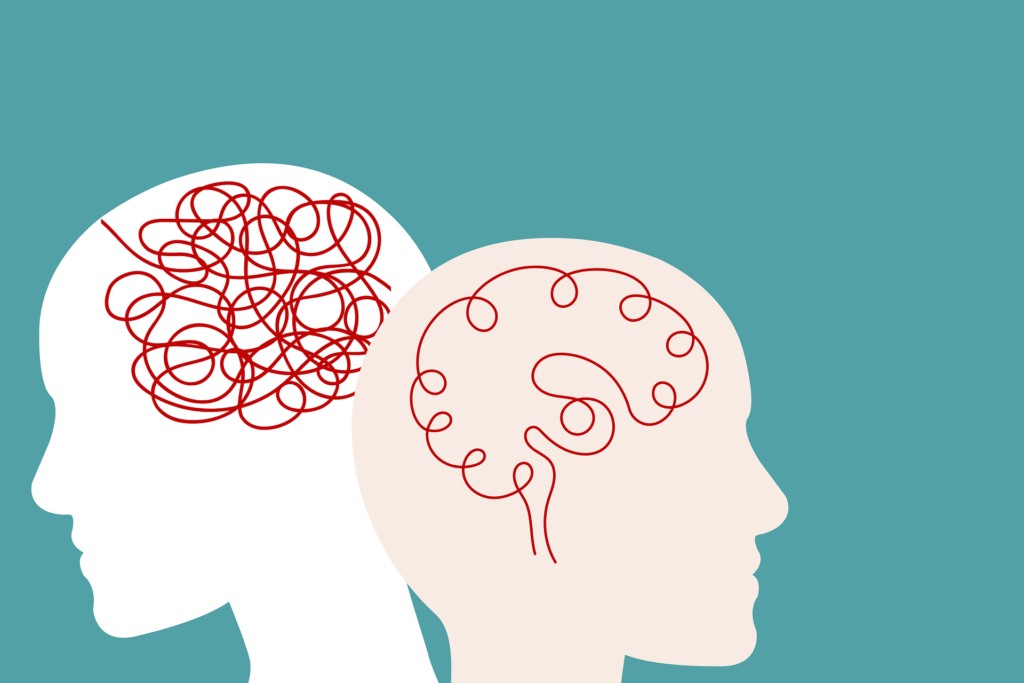One approach that is gaining recognition for its holistic and effective approach to healing relationships is Somatic Couples Therapy. By integrating body-oriented therapies with traditional talk therapy, this method strives to connect both partners not only on a mental level but also on a physical and emotional level. This blog will illuminate how Somatic Couples Therapy works and its potential benefits for your relationship.
Contents
What Is Somatic Couples Therapy?
 Somatic Couples Therapy is a therapeutic approach that combines elements of traditional talk therapy with body-oriented techniques. It is grounded in the understanding that our bodies hold onto past traumas, emotions, and experiences. That can impact how we behave in relationships.
Somatic Couples Therapy is a therapeutic approach that combines elements of traditional talk therapy with body-oriented techniques. It is grounded in the understanding that our bodies hold onto past traumas, emotions, and experiences. That can impact how we behave in relationships.
Instead of focusing solely on conversation and intellectual understanding, this type of therapy emphasizes the connection between the mind and body. Further, helping couples become more aware of their physical responses and sensations during interactions with each other.
What Is The Theory Behind This Therapy?
The theory behind Somatic Couples Therapy is rooted in the concept of somatic psychology. This posits that the mind and body are not separate entities but are intrinsically connected. This approach believes that our physical bodies hold onto experiences and emotions, not just our minds.
It’s grounded in the understanding that unresolved traumas and suppressed emotions can become physically embodied. And affecting our physical health and mental well-being, as well as how we relate to others.
Further, it believes in the concept of “interpersonal neurobiology.” Thissuggests that our brains are shaped by our relationships. This theory argues that by changing how we physically respond to each other in a relationship, we can change our emotional responses and patterns of behavior. Thus reshaping our relationship.
Somatic Couples Therapy Techniques and Exercises
 Somatic Couples Therapy incorporates a variety of therapeutic techniques and exercises to help couples tune into their physical sensations and improve their connection. Here are a few techniques and exercises commonly used:
Somatic Couples Therapy incorporates a variety of therapeutic techniques and exercises to help couples tune into their physical sensations and improve their connection. Here are a few techniques and exercises commonly used:
Shared Breathing Exercises
Both partners engage in synchronized breathing exercises. This activity is meant to help partners attune to each other, regulate their nervous systems together. And create a shared sense of calm.
Body Sensation Awareness
Therapists guide partners to notice their physical sensations during different interactions. For example, what happens in your body when you feel loved, or when you’re upset with your partner? This can help partners understand how their bodies respond to different emotions and situations, and how these physical responses impact their interactions.
Grounding Exercises
Therapists teach partners grounding techniques to help them stay present and focused during difficult conversations or emotional situations. This can include focusing on physical sensations, like feeling their feet on the ground, or visualizing a calming scene.
Physical Connection Exercises
These can involve touch (with mutual consent) or non-verbal communication exercises. For example, a therapist might guide partners to sit quietly and hold hands, noticing the feelings and emotions that arise.
Movement and Gesturing
Partners are encouraged to express their feelings and needs not only through words, but also through movements or gestures. This can help partners communicate more authentically and foster a deeper understanding of each other’s emotions.
Role Play
Partners might be guided to enact specific situations or dialogues, helping them explore their physical responses and experiment with new ways of interacting.
These techniques are designed to help partners become more aware of their physical responses to each other, regulate their emotions better, and communicate more effectively and empathetically. The specific techniques used can vary depending on the couple’s needs and the therapist’s approach.
Who Is An Ideal Candidate For Somatic Couples Therapy?
 Somatic Couples Therapy can be a beneficial approach for a wide variety of couples, depending on their unique circumstances and needs. However, some people might find this approach particularly helpful. They include:
Somatic Couples Therapy can be a beneficial approach for a wide variety of couples, depending on their unique circumstances and needs. However, some people might find this approach particularly helpful. They include:
Couples Experiencing Communication Breakdown
If a couple is experiencing difficulties in communication, such as misunderstanding, frequent conflicts, or an inability to express their feelings effectively. Then, this can provide techniques to improve non-verbal communication and promote empathetic understanding.
Couples with a History of Trauma
For individuals or couples who have experienced trauma in their past, somatic techniques can be a powerful tool for healing. Trauma often has a physical component, and exploring this can bring about a deeper level of recovery.
Couples Struggling with Emotional Regulation
If one or both partners struggle with regulating their emotions during interactions. Then, it can provide strategies to stay grounded and present, reducing emotional volatility.
Couples Looking for Alternative Therapies
Some couples might have tried traditional talk therapy and found it not as effective as they hoped. In these cases, this can provide a new and different approach that might be more successful.
Individuals Comfortable with Body Awareness
Somatic therapy places a strong emphasis on physical sensations and body awareness. Individuals who are comfortable with this or open to exploring it may be well-suited to this approach.
As with any therapy, the key to success is the willingness of the individuals to engage fully in the process and commit to change. It’s also crucial to work with a trained, professional therapist who can guide the process effectively and safely.
What Are The Pros And Cons Of Somatic Couples Therapy?
Somatic Couples Therapy offers several unique advantages. But, like any therapeutic approach, it also has potential drawbacks. Here are some of the pros and cons:
Pros
- Holistic Approach: Somatic Couples Therapy views individuals and their relationships through a holistic lens that includes not just the mind but also the body. This comprehensive perspective can lead to deep and lasting change.
- Deepening Connection: By focusing on body awareness, this therapy can help partners develop a deeper, more empathetic understanding of each other. It can enhance non-verbal communication and create a profound sense of connection.
- Trauma Healing: For couples dealing with past traumas, this therapy can provide a powerful path to healing. It recognizes that trauma often manifests physically and provides tools to address this aspect.
- Emotional Regulation: The body-centered techniques used in this therapy can help individuals regulate their emotions more effectively. This can lead to less conflict and healthier interactions between partners.
- Enhanced Self-Awareness: This therapy encourages individuals to tune into their physical sensations, promoting a greater self-awareness that extends beyond the therapy room.
Cons
- Comfort Level: The focus on bodily sensations and potential use of touch (with consent) may make some individuals uncomfortable. Especially those with a history of physical trauma or personal boundaries related to touch.
- Time and Commitment: Like all forms of therapy, Somatic Couples Therapy requires time, effort, and commitment. The process can be challenging and sometimes uncomfortable as it often involves confronting difficult emotions.
- Limited Availability of Specialists: Not all therapists are trained in somatic techniques. Depending on your location, it might be challenging to find a therapist specializing in this approach.
- Inadequate Replacement for Medical Treatment: While somatic therapy can be effective in managing stress, trauma, and relationship issues, it shouldn’t replace necessary medical or psychiatric treatment. Individuals with certain mental health conditions may require additional interventions beyond Somatic Couples Therapy.
Remember, every couple’s needs and circumstances are unique. What works for one couple might not work for another. It’s essential to discuss your options with a mental health professional to decide the best approach for your situation.
How To Find Somatic Couples Therapist Near Me?
 To find a somatic couples therapist near you, you can follow these steps:
To find a somatic couples therapist near you, you can follow these steps:
- Search Online Directories: Start by searching online therapist directories or databases that allow you to filter your search by location and specialization. Websites like CoupleMantra and MantraCare are commonly used directories that provide search options for somatic therapists.
- Seek Referrals: Reach out to your primary care physician, mental health professionals, or trusted individuals in your network who may be familiar with somatic therapy or couples therapy. They may be able to provide recommendations or referrals to somatic couples therapists they know or have worked with.
- Contact Professional Associations: Get in touch with professional associations or organizations related to somatic therapy or couples therapy. These associations often have directories or referral services that can connect you with qualified therapists in your area.
- Consult with Therapist Networks: Explore local therapist networks or organizations in your community. These networks often have resources and directories that can help you find somatic couples therapists in your area.
Once you have compiled a list of potential somatic couples therapists, take the time to research their credentials, read their profiles. And assess their experience and expertise in working with couples using a somatic approach.
It’s also recommended to schedule initial consultations or phone interviews to determine if the therapist is the right fit for you and your partner. Don’t hesitate to reach out to multiple therapists and ask questions to ensure you feel comfortable and confident in your choice.
Conclusion
In conclusion, Somatic Couples Therapy provides a holistic approach to relationship healing by acknowledging the deep connection between our minds and bodies. This innovative form of therapy recognizes that our physical experiences are intertwined with our emotional states. And can significantly influence our relationships. However, like any therapeutic approach, it requires commitment and may not be suitable for everyone.
Addressing and resolving a couple of issues is essential for a strong and lasting partnership. If you have any queries regarding Online Couple Counseling experienced therapists at CoupleMantra can help. Book a trial couple therapy session.


